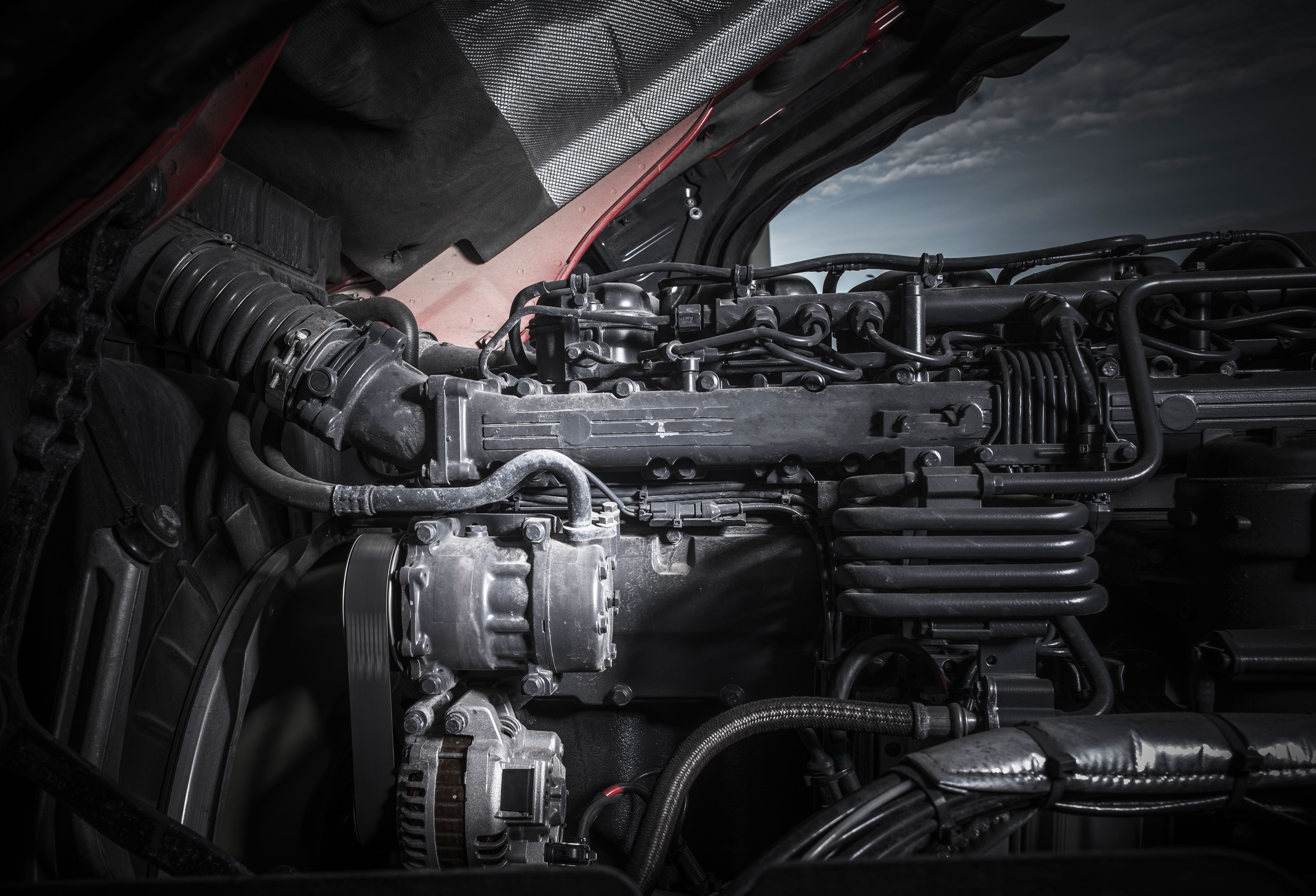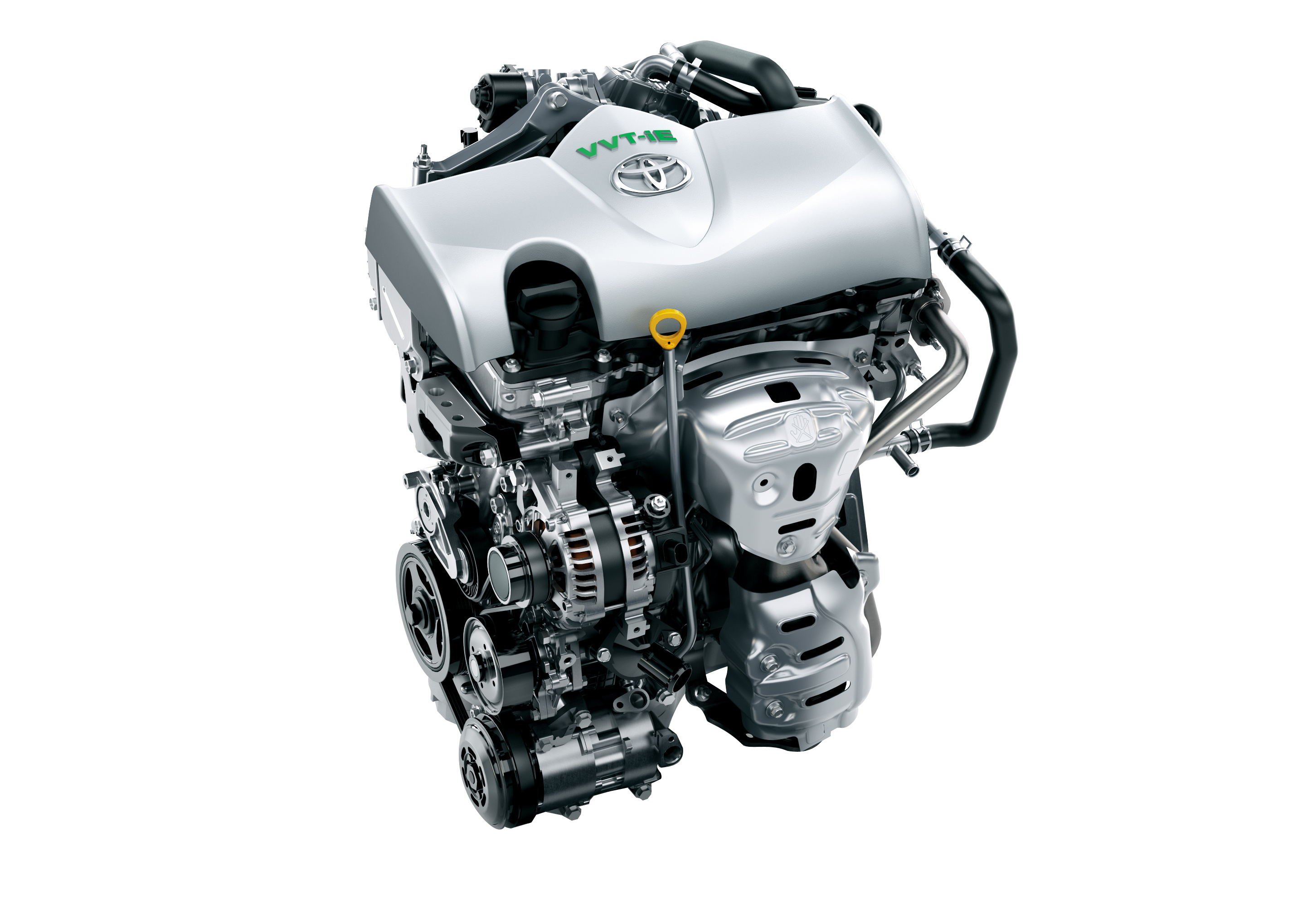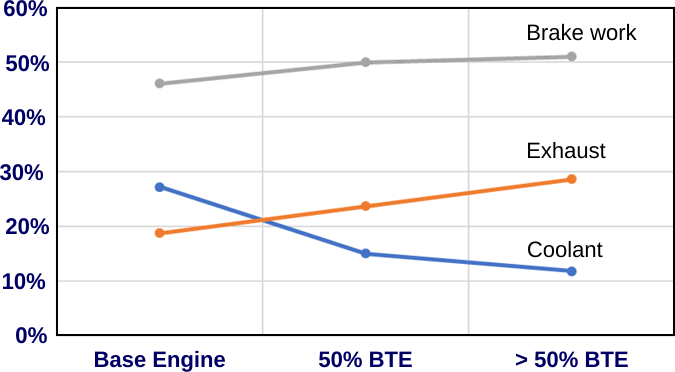About How Efficient Is a Typical Gasoline Burning Car Engine
The rest of the energy is lost to engine and driveline inefficiencies or used to power accessories. The heat is used to make steam which is then used to turn the wheels of the engine.

How Efficient Are Engines Thermodynamics And Combustion Efficiency
Passenger car diesel engines have energy efficiency of up to 41 but more typically 30 and petrol engines of up to 373 but more typically 20.

. Luckily people are always working on ways to improve the performance of engines. This chapter provides an overview of gasoline enginesIn the conventional spark-ignition engine fuel and air are drawn into the combustion cylinder together and are intended to form a homogeneous mixture of air and vapour by the time of ignition towards the end of the compression stroke. Hopes for a more efficient engine.
Diesel engines generally achieve greater fuel efficiency than petrol gasoline engines. Gasoline-powered engines are 25 to 30 efficient. E 010 color c34632e 010 e 010.
Ciatti explains What we want to do is combine the efficiency of diesel with the cleanliness of gasoline Gasoline and diesel engines both produce power by burning fuel in air. In 2020 total US. All simple machines ideally work on the principle that.
The last few years have really opened the door for more. Therefore the potential to improve fuel efficiency with advanced technologies is enormous. So average passenger vehicle efficiency is more like 20.
A typical passenger car fueled by gasoline is operating at roughly 10-12 thermal efficiency while at 40 mph on level ground. The purpose of this discussion is to bring home the fact that the efficiency of gas engines vary dramatically over their power range. A gasoline engine at a steady engine speed has a fuel mass flow rate of 6 gs and outputs 80 kW of power.
Gasoline engines also have a pretty wide range. In the process however energy is wasted. CO 2 emissions from aviation and motor gasoline combustion were about 979 million metric tons or about 21 of total US.
The Clean Air Act the Act seeks to reduce air pollution in. Tank to wheel efficiency numbers are. A typical passenger vehicle emits about 46 metric tons of carbon dioxide per year.
About how efficient is a typical gasoline burning car engine a 5 b 70 c 30 d 100 from CPHY 101 at University of Massachusetts Boston. Modern gasoline engines have a maximum thermal efficiency of more than 50 but road legal cars are only about 20 to 35 when used to power a car. This effectively debunks the assertion that electric cars are dirtier and more environmentally destructive than gas engine cars.
Diesel engines can be more than twice as fuel efficient as gasoline engines but they also produce more pollution like particulate matter and nitrogen oxide. M 1500 k g color c34632 m 1500kg m 1500 k g. A modern high-mpg vehicle may reach the neighborhood of 25-30 fuel-to-motion efficiency under perfectly-optimal use.
When a worker shovels coal into the furnace of a train engine energy is released from the coal as heat. A typical car only converts around 25 percent of the energy in gasoline into useful energy to make it run. Burning a gallon of gasoline that does not contain ethanol produces about 19 pounds of carbon dioxide CO 2.
Gasoline contains about 33 kWh of energy per gallon. How efficient is a typical gasoline burning car engine. Emissions Per Mile Driven.
The Tesla uses 320 Whmile of energy 85 kWh265 miles. Consider a similar gas-powered car which gets 35 mpg. Just think only 20 of the power produced by the burning fuel is useful and even less than that ever makes it to the wheels of your car.
The mass of the car is. This number can vary based on a vehicles fuel fuel economy and the number of miles driven per year. Most internal combustion engines are incredibly inefficient at turning fuel burned into usable energy.
The fuel conversion efficiency of the engine is 307. But most driving does not occur at the perfect engine load RPM conditions. About how efficient is a typical gasoline-burning car engine.
But the truth is even more in favor of electric cars because gas cars are far less efficient in terms of energy needed per mile driven. Click on the questions below to learn more about this estimate and see answers to common questions about greenhouse gas emissions from passenger vehicles. Only about 1230 of the energy from the fuel you put in a conventional vehicle is used to move it down the road depending on the drive cycle.
And its final velocity is. The efficiency of the engine is. Energy-related CO 2 emissions.
A common margin is 25 more miles per gallon for an efficient turbodiesel. In other words even when the engine is operating at its point of maximum thermal efficiency of the total heat energy released by the gasoline consumed about 65-80 of total power is emitted as heat without being turned into. How to calculate fuel conversion efficiency.
Calculate the fuel conversion efficiency using the lower heating value of conventional gasoline. V 15 m s color c34632v 15ms v 15 m s. The efficiency by which they do so is measured in terms of thermal efficiency and most gasoline combustion engines average around 20 percent thermal efficiency.
Engines arent very efficient. The efficiency by which they do so is measured in terms of thermal efficiency and most gasoline combustion engines average around 20 percent thermal efficiency. ANNAND in Internal Combustion Engines 1988 Publisher Summary.

How Efficient Is A Gasoline Burning Car Engine Mcnally Institute

Toyota Gasoline Engine Achieves Thermal Efficiency Of 38 Percent

No comments for "About How Efficient Is a Typical Gasoline Burning Car Engine"
Post a Comment